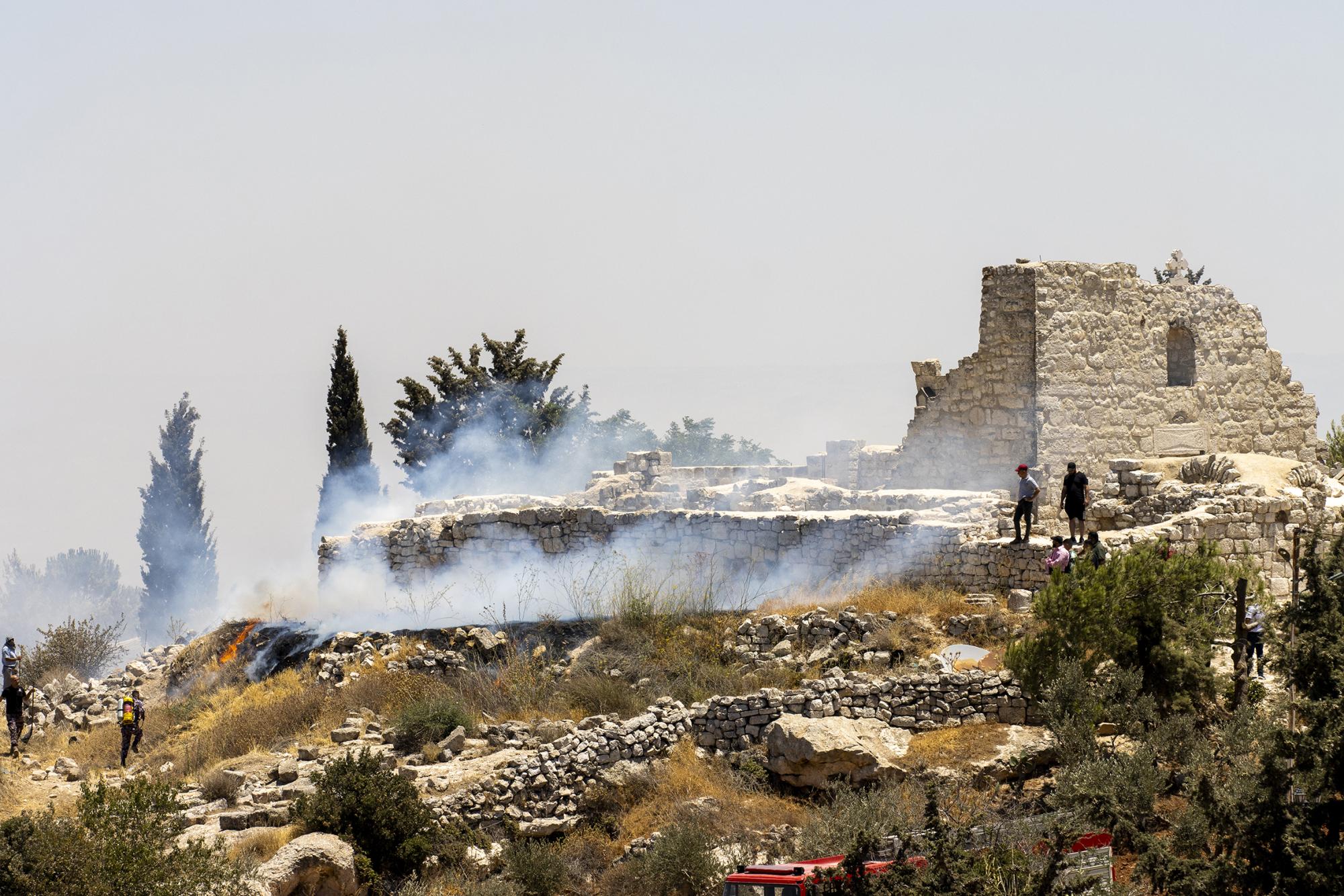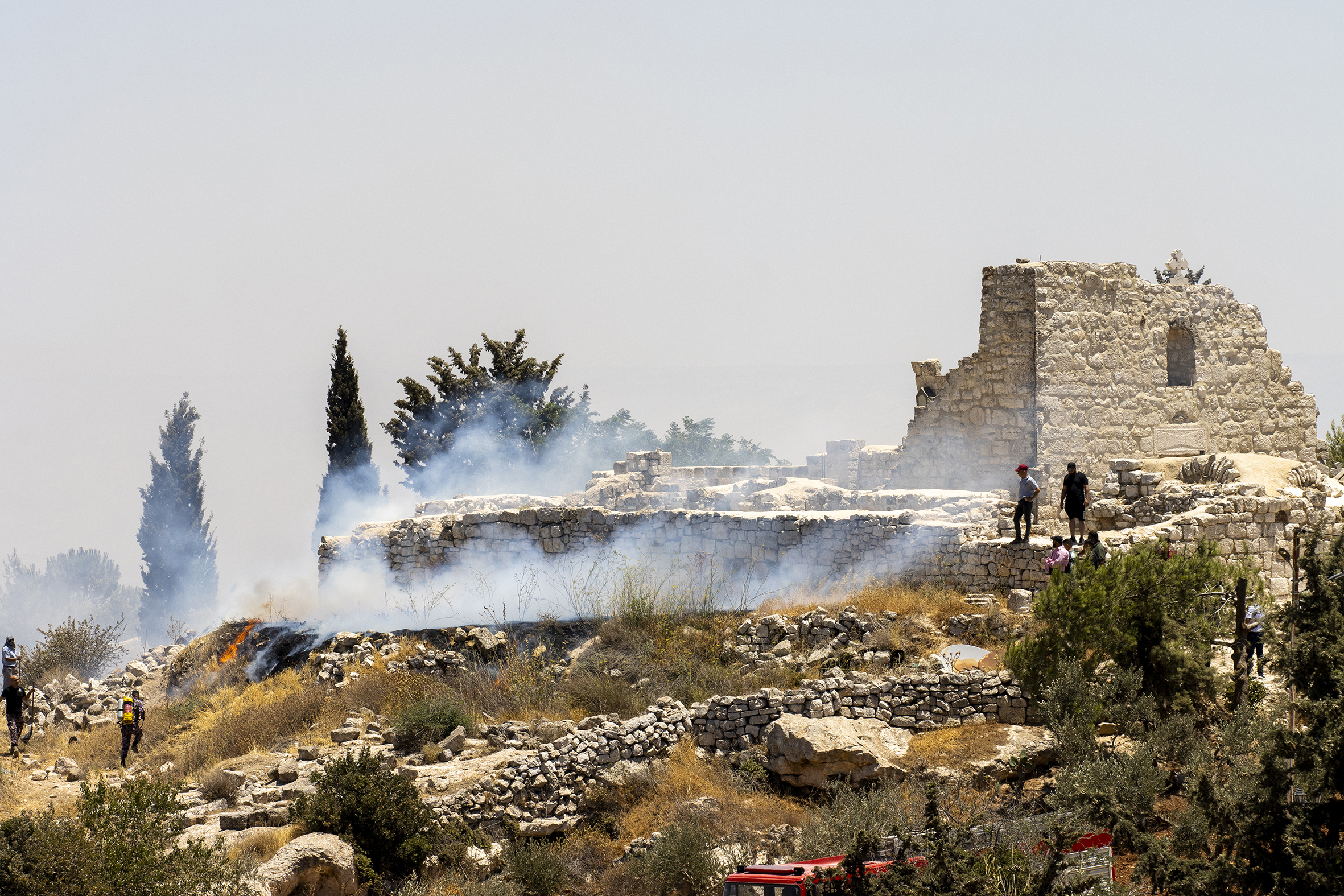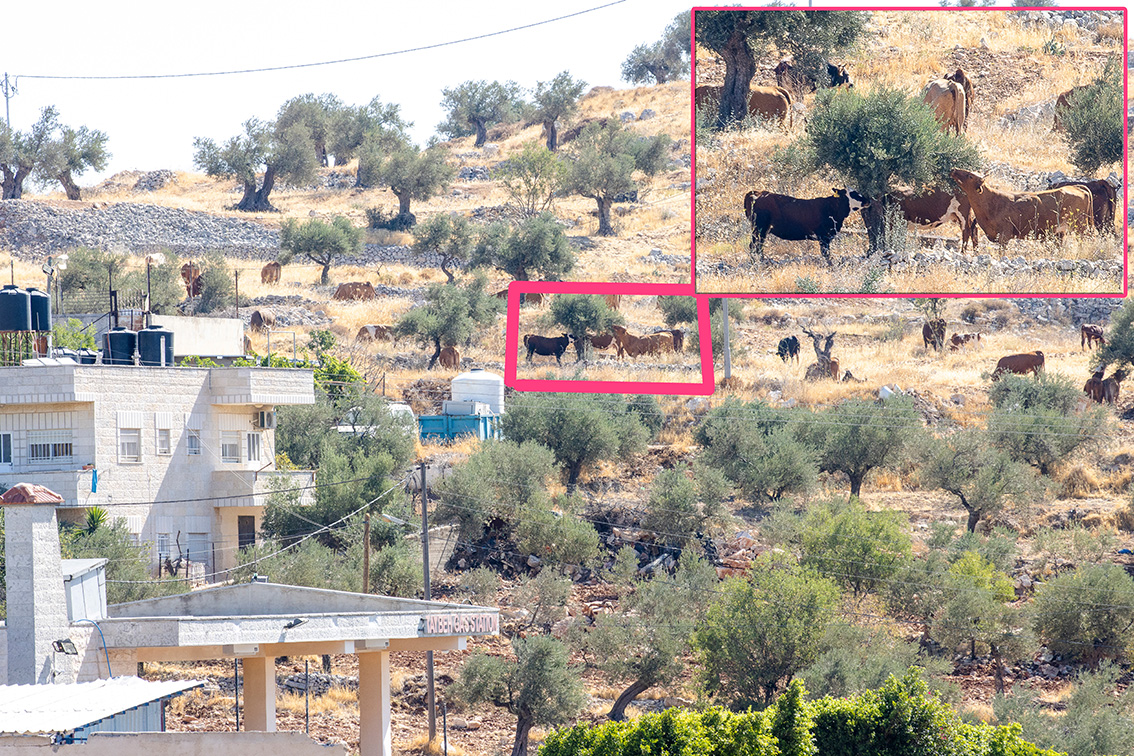
Taybeh - "Nabd ElHaya" – In a statement released today, Tuesday, July 8, 2025, the priests of the Churches of Taybeh – Latin, Melkite Greek Catholic, and Greek Orthodox – issued a clear call to the world, expressing deep concern over the increasing and repeated attacks, documented by Israeli settlers, targeting the town's land, holy sites, and properties, amid official silence that exacerbates the sense of danger and lack of protection.
On behalf of themselves, the townspeople, and their parishioners, the priests strongly condemned these attacks, which threaten the security and stability of Taybeh, as well as targeting the dignity of its residents and the sanctity of its land.
The statement, signed by Father Daoud Khoury, Father Jack-Nobel Abed, and Father Bashar Fawadleh, described the situation in the town as "a series of dangerous, systematic attacks" that no longer just threaten the town’s security, but are directly aimed at undermining the dignity of its Christian residents and disrupting their historic and religious heritage.

One of the most recent incidents occurred on Monday, July 7, 2025, when settlers intentionally set fire near the town's cemetery and the ancient Church of Saint George (Al-Khadr), dating back to the 5th century and considered one of the oldest religious landmarks in Palestine. According to the statement, the swift intervention of local residents and firefighting teams prevented a disaster that could have consumed the church entirely.
However, this incident was not isolated; it is part of daily attacks that have become all too familiar to the residents of Taybeh. The statement notes that settlers continue to graze their cattle on the town's agricultural lands, including private fields near homes, without facing any legal or security deterrent. This activity not only provokes but also causes direct damage to olive trees, a primary source of livelihood for the families, and prevents farmers from accessing and working on their land freely.
The statement also highlighted that the eastern part of Taybeh, which represents more than half of the town’s territory and hosts most of its agricultural activity, is particularly threatened. This area has become the target of illegal settlement outposts that expand quietly under military protection, serving as a launchpad for further attacks on the land and its people.

The priests warned that silence in the face of these attacks is no longer an option. Taybeh, known in the Gospel as "Ephraim," the place where Jesus withdrew before His Passion (John 11:54), is today the last entirely Christian town in the West Bank. Its Christian presence, deeply rooted for over two thousand years and carefully preserved across generations, is now at serious risk of erosion due to the systematic targeting of its land, holy sites, and people.
In conclusion, the priests issued a clear call to consuls, ambassadors, and church representatives worldwide, urging them to initiate an immediate and transparent investigation into the arson incidents and ongoing assaults. They also called for diplomatic pressure on the Israeli occupation authorities to prevent settlers from entering the town's lands and for international field missions to document the violations. They demanded support for the people of Taybeh through economic and agricultural initiatives and effective legal accompaniment, emphasizing that "the Holy Land cannot remain alive without its indigenous people."
The priests ended their statement with a poignant sentence encapsulating the situation: "Forcibly removing farmers from their land, threatening their churches, and surrounding their town is a blow to the living heart of this nation. Yet, our hope remains steadfast: that truth and justice will ultimately prevail."
